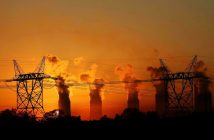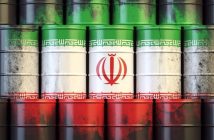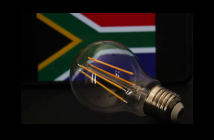The African continent continues to fall behind the rest of the world in terms of large and small scale renewable energy roll out. In contrast, some European countries like Germany are close to saturation point. A continent so rich in renewable energy resources, how do we unlock the value of renewable energy in Africa?
If there is one glaring commonality in most African countries, it is the centrally integrated government structures which control the supply of electricity. Most governments in Africa appear to see their energy ministry and the associated utilities as a political tool and an opportunity to foster a developmental state.
The developmental state is central to most ruling party’s loyalty program in the form of jobs for votes. The end result in some cases is multiple energy utilities in the value chain and a bloated staff compliment. The reality is that the developmental state is an epic fail. It is a breeding ground for corruption and requires regular bailouts to keep the wheels turning. The overarching consequence is stagnation in energy production capacity and grid infrastructure development.
We must also not forget the legacy of colonialism and its effect on the energy sectors in countries in Africa. The colonist ‘master’ installed limited electricity grid infrastructure to service their own economic interests. As a result, the governments of Africa would always be on the back foot when it comes to electricity grid expansion and production. But like the adoption of the cell phone from having no phone at all, the people of Africa will readily adopt electricity from renewable sources from having no electricity at all.
At this point in time, only seven countries—Cameroon, Côte d’Ivoire, Gabon, Ghana, Namibia, Senegal and South Africa have electricity access rates exceeding 50 percent.
The obvious way of overcoming this challenge is to de-centralise the supply of electricity in African countries. More recently, there have been a number of green shoots projects initiated by NGO’s and Aid Organisations in Uganda, Tanzania and Kenya attempting to do just that. They take the form of small off grid- mini grid projects servicing identified villages which previously had no electricity supply.
The projects are structured in the form of a public private partnership and awarded through a tender program. The successful Independent Power Producer is responsible for power generation, operation and maintenance plus metering and billing to end user. The local Rural Electrification Authority provides the distribution and connection infrastructure for a nominal annual rent.
The projects are commendable but still not completely decentralised. The government owns the distribution and metering infrastructure. This poses a risk for the Independent Power Producer as their production can easily be cut off from the end user in the event of political unrest, a change in government or a simple disagreement.
Global energy trends are moving away from expensive coal and nuclear fired power stations that require long, inflexible timelines. Renewables offer clean, cheaper electricity with shorter timelines and a lot more flexibility. So it is really a case of adapt or continue to fall behind.
The only way large scale roll out of renewable energy projects in Africa can occur is through a decentralised system where whole or part of the value chain is under private control. This will involve government allowing private energy producers to supply power directly to government and/or the end users under a license. Governments in Africa simply cannot afford to do it themselves.
It is a massive strategy shift for most countries in Africa to contemplate. The benefits in infrastructure development, skills training, healthcare and education to name a few, are too good to ignore. Centrally integrated structures are all about control. In this case, if the control is relaxed, everyone in Africa might just have power one day.
Author: Bryan Groenendaal











